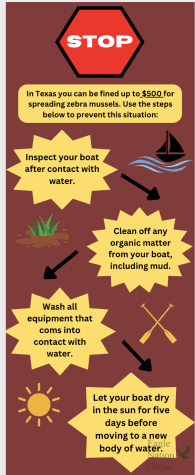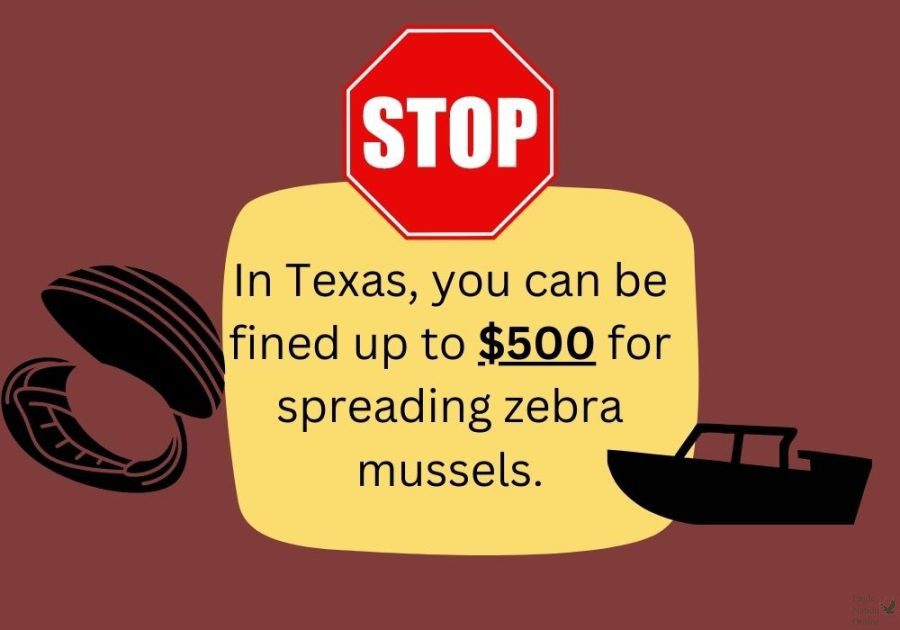Column: Zebra Mussels threaten North Texas lakes, rivers
The above graphic made using Canva illustrates the negative drawbacks of aiding the spread of zebra mussels. Zebra mussels are an invasive species that are endangering North Texas’s bodies of water. Zebra mussels are what scientists call “filter feeders,” a species that feeds off of microscopic animals and plants called plankton. At first, a natural filtering system seems like it would benefit the local habitat, but when you put into perspective that many other native organisms also consume plankton, this trait becomes concerning.
October 19, 2022

Zebra mussels, an invasive mollusk originally from the Caspian Sea in Asia, are spreading and infecting the lakes, rivers, and freshwater bodies of Texas. This mussel gets its name from the zebra-like stripes on its shell, and it grows only to the size of a human fingernail. Though they are small, zebra mussels can make a huge negative impact on the environment.
Lake Lewisville, Lake Grapevine and Lake Ray Roberts are three of the largest fresh bodies of water in the area. All are classified as infested when it comes to the zebra mussel population. These lakes are also ideal locations for fishing, boating and tubing. With so many people coming and going from the lake each year, it is of vital importance that visitors know the dangers and threats that these mussels pose.
Zebra mussels are what scientists call “filter feeders,” a species that feeds off of microscopic animals and plants called plankton. At first, a natural filtering system seems like it would benefit the local habitat, but when you put into perspective that many other native organisms also consume plankton, this trait becomes concerning.
When native species such as shrimp, native mussels, and fish are deprived of their food source due to competition with the zebra mussels, eventually they starve and die off until their numbers are completely depleted. In turn, this causes a domino effect that eventually causes the whole ecosystem to collapse. In other words, dozens of fish and aquatic life parish.
The effect of zebra mussels reaches beyond wildlife and the ecosystem as well, impacting human activities and living conditions. Upon entering the lake, many zebra mussels will attach themselves to the nearest surface possible, which in some situations happens to be the metal or wood coating of docks and boats.
With time, these mussels can cause significant damage to these materials or can permanently attach themselves creating a harsh coating almost impossible to remove. Both of these scenarios can cost fishers and boaters hundreds if not thousands of dollars in damage and losses.
For these reasons and many others, visitors of these lakes should take extra caution in their actions, or they could suffer serious consequences of the law – and environment.

























